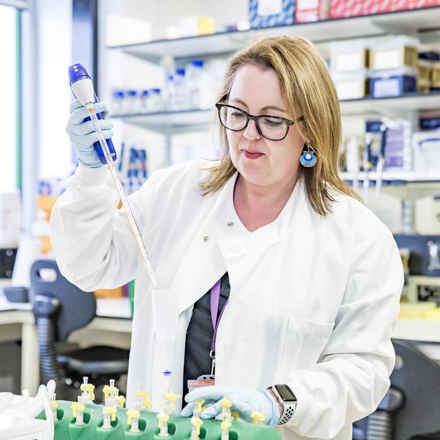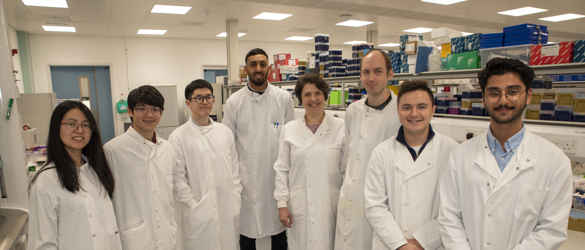Switching off the genes that cause Best disease

Dr Amanda-Jayne Carr, UCL Institute of Ophthalmology - £170,000
August 2018 – December 2021
Research summary
Best disease is caused by a faulty gene and leads to permanent sight loss. It’s a dominant genetic disease (meaning that you only need to have one copy of the mutated gene from your parents in order to have the condition).
This research aimed to switch off the faulty gene and leave the healthy gene remaining to stop the progression of the disease, and the sight loss it causes.
What’s the problem?
Best disease is a genetic condition that causes a toxic protein to be produced instead of the healthy one. A build-up of this protein damages the retinal cells in the back of the eye. When these cells die, this causes vision loss. Currently there are no treatments available for Best disease or other similar bestrophinopathies.
What did the project achieve?
The researchers grew stem cells from Best disease patients with different mutations in the BEST1 gene. They were able to switch off the faulty gene while keeping the healthy copy intact. They did this using gene editing so that no toxic protein is produced. Due to COVID, the laboratories were closed or had limited access for a number of months. During this time the researchers created a patient information website dedicated to Best disease, which can be found at https://tinyurl.com/BestPatientResource.
What’s next?
Following on from this work of switching off the faulty gene in Best disease stem cells, the researchers are looking at whether this technique can be used for other macular conditions such as a condition called late onset macular degeneration. Further work on the stem cell models for Best disease is being investigated to better understand what happens to these cells when you switch off the faulty gene.
Publications
Singh Grewal, Simranjeet et al. “Bestrophinopathies: perspectives on clinical disease, Bestrophin-1 function and developing therapies.” Therapeutic advances in ophthalmology vol. 13 2515841421997191. 27 Feb. 2021, doi:10.1177/2515841421997191
Smith JJ, Nommiste B, Carr AF. Bestrophin1: A Gene that Causes Many Diseases. Adv Exp Med Biol. 2019;1185:419-423. doi: 10.1007/978-3-030-27378-1_69. PMID: 31884648.
See our other projects
Since 1987 the Macular Society has invested around £10 million in over 100 research projects.
Explore more research
Beating macular disease through funding medical research and improving the lives of those living with macular disease.
Get the latest research news from the Macular Society
To hear about life-changing research and treatments, subscribe to our monthly enewsletter today. Together we can Beat Macular Disease.
Sign up to our free email newsletter



